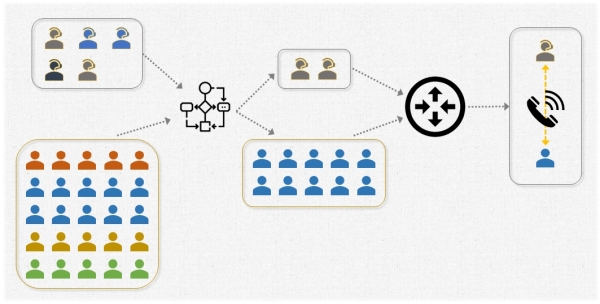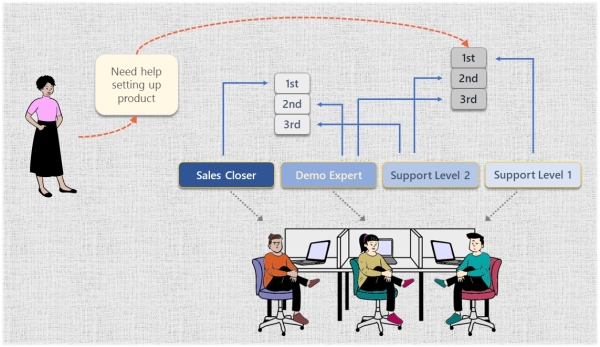Effective Use of Agent Skills to Manage Your Calls
Everything we do, we do it better if we have the right skills for the task. Call Center operations are no different and we try to assign tasks based on skills or skill levels, whether it is expert versus novice, sales vs support, tier 1 versus tier 2, qualifier versus closer, or any other criteria that apply to our operations. For that reason, it is important to define business processes that consider skills. It serves the operation an additional level of efficiency and efficacy.
With that in mind, let’s discuss some ways in which a skill-based approach can help. Let’s start with the key premise that using skills is about assigning a task, in particular a call, to the most suitable agent instead of simply assigning it to the next available agent.
The case of outbound calls, those we initiate to reach leads or contacts, an effective way to use agent skills to assign outbound calls to the most appropriate agents is to segment leads or contacts and create corresponding skill-based prioritization rules, where each Skill or Skill Set is associated with a priority rule, working as additional criteria over standard configuration call assignment rules. This way, when calls are to be placed to numbers associated with a particular priority rule, agents with the associated skill or skill set are first in line to handle those calls.
A common use of a skill-based approach is when routing inbound calls to the agent that has the skill and training to handle the particular reason for the call. In other words, if it is a call about billing, route it to a billing representative; if it is a call about issues with the product or service, route it to a support agent; and so on. Furthermore, within each of those groups there could also be sub-categories; for example, a billing call could be about billing errors, or could be about payment arrangements for overdue bills, etc.
One way to route a call to the agent with the most suitable agent is by defining call queues and creating a relationship between the queue and the skill. The caller can reach the queue based on the number they dialed, for example the billing number or the support number, or by going through a selection process such as an IVR tree, a smart bot, or some other intelligent routing determination.
To make sure that the call is handled no matter what, the queue could be associated with multiple skills in order of priority, allowing the assignment process to go in progression through the skills to get the best possible agent available at the moment. And if there is no agent available with any of listed skills, have the option to decide what to do next, whether it is to assign it to any available agent regardless of skill, send it to another queue, offer a call back, route to a voice mailbox, simply play a message to call back, etc. What is important is to have the ability to set it up in the way that makes sense to your business.
Of course, the decision of using agent skills to manage call assignments, and to what level, is very dependent on the personnel available. Straight skill-based assignment is effective when there are enough resources for the different tasks, and a reasonable number of those resources have specialized skill or training that will make a difference in efficiency and effectiveness. Limitations in that area can be minimized by using smarter more advanced skill-based capabilities like the ones mentioned in the previous paragraph.
Check back with us constantly as we write more about concepts, ideas, and strategies that we are sure to make you think about how to make your business even better. See you again soon!



